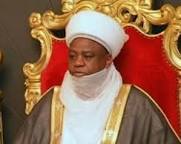
The Sultan of Sokoto, Sa’ad Abubakar, has voiced concern about the deep-rooted environmental, political, and security challenges plaguing the Sahel region. Abubakar stated this in Abuja at the 1st News Agency of Nigeria International Lecture, themed “Insecurity in the Sahel, 2008 to 2024: Dissecting Nigeria’s Challenges – Genesis, Impacts and Options.”
Abubakar noted that the Sahel region, separating the Sahara Desert from the tropical savannah, is rich in mineral resources like lithium, cobalt, and uranium. By 2050, it is expected to be home to 1.5 billion people, making it one of the youngest and largest populations globally.
Despite its potential, the region faces numerous challenges hindering its prosperity and peace. The United Nations has developed a support plan targeting 10 countries: Burkina Faso, Cameroon, Chad, The Gambia, Haiti, Mauritania, Mali, Niger, Nigeria, and Senegal.
The plan focuses on cross-border cooperation, prevention and sustainable peace, peace-to-growth, climate action, and renewable energy. Its overarching goal is to accelerate shared prosperity and lasting peace in the Sahel region by implementing priorities aligned with the 2030 Agenda for Sustainable Development and the African Union’s Agenda 2063.
Abubakar emphasized the importance of understanding the historical, cultural, and religious connections among the people of the Sahel. These connections have driven social integration and created trade routes over the centuries.
The regional support plan for the Sahel will be inaugurated in Gwane during a high-level meeting of the Sahel and the 31st African Union Summit in Nouakchott, Mauritania’s capital.
